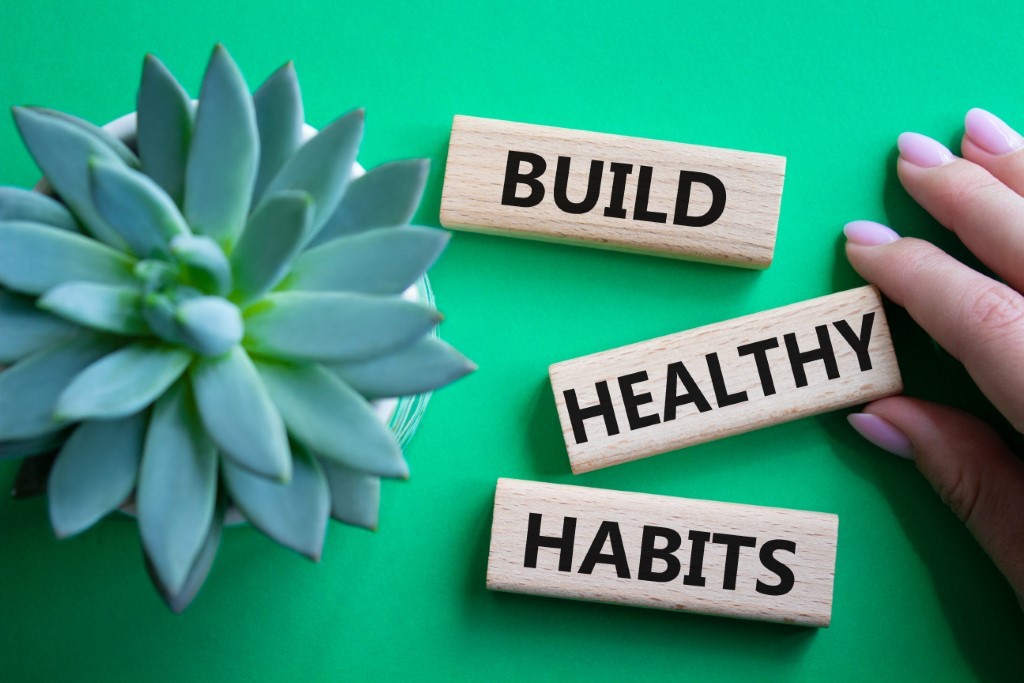You probably already know the feeling of addiction. It’s a vice grip that prevents you from living the good life you deserve. Even if you successfully break from its chains, can you fully recover?
The answer is yes. The process is long and challenging but very much possible. It involves building a healthier lifestyle that not only improves your life but may also help you quit your addictions. That’s what an addiction recovery lifestyle is all about–a sustainable path towards long-term well-being.
Ready to make a change? This blog will help you build a healthy lifestyle during recovery. Keep reading!

Shifting Your Mindset
Recovery is more than just quitting an addiction; it’s a chance to learn and grow about yourself. Reframe your mindset by cultivating self-compassion and imagining the fulfilling life you can build. That’s what will change how you view your situation.
Part of that shift in mindset is understanding that you may need to switch out your harmful habits into healthy ones. Many treatment programs incorporate holistic lifestyle changes in rehab to ensure patients have suitable options for their unique situations.
Building Your Healthy Foundation
Creating a healthy addiction recovery lifestyle starts with a stable foundation. Here’s what you should be focusing on while on your recovery journey.
Strong Body, Strong Start
You are what you eat, and during recovery, nourishing your body does wonders. Adequate sleep recharges your mind and body. Try to achieve seven to eight hours of sleep a night. Eating a balanced diet also gives you the energy to tackle your day. Exercise releases endorphins, those feel-good chemicals that can naturally improve your mood. Start with brisk walks or light workouts and gradually increase the intensity to improve your physical fitness.
Mental Wellness Matters
Stress can be a trigger for relapse. Learn healthy ways to manage it. Deep breathing exercises and meditation are simple tools you can use anywhere. Spending time outdoors may also help. Therapy can be a valuable resource for addressing underlying mental health issues like anxiety or depression. Don’t hesitate to seek professional help, too.
The Power of Social Support
Surround yourself with positive people who believe in your recovery. Lean on supportive friends and family. If you don’t have a strong support system yet, consider joining an addiction recovery support group. These groups connect you with others who understand your challenges and can offer encouragement and advice. Look for online or in-person options that fit your needs.

Maintaining Motivation and Celebrating Milestones
Staying motivated and consistent in your addiction recovery lifestyle takes work. There will be days when you feel discouraged or overwhelmed. That’s normal. The key is to have strategies in place to keep you moving forward.
Setting Achievable Goals
Don’t try to overhaul your life overnight. Set small, achievable goals that you can celebrate along the way. This could be anything from sticking to your sleep schedule for a week to trying a new healthy recipe. Accomplishing these mini-victories builds confidence and keeps you motivated.
Tracking Progress and Celebrating Victories
Visualizing your progress is a powerful tool. Keep a journal to track all your achievements. Did you meditate for five minutes every day this week? High-five yourself! Celebrating these milestones reinforces positive behaviors and keeps you on track.
Inspirational Stories and Quotes
Surround yourself with inspiration. Read stories of others who have overcome addiction. Find quotes that resonate with you and post them where you’ll see them daily. A little dose of inspiration can go a long way when you’re feeling discouraged.
Cultivating a Positive Mindset
Your inner voice matters, too. Challenge negative self-talk and replace it with positive self-affirmations. Tell yourself, ‘I am strong’ or ‘I am worthy of recovery.’ Focusing on the positive empowers you and keeps you moving in the right direction.
Dealing with Setbacks and Relapses
Recovery isn’t always linear, either. There will be times you’ll stumble. The important thing is to learn from your setbacks and get back on track.
Understanding the Risk of Relapse
Relapse is a possibility among many of those still in recovery. But don’t view it as a failure. Knowing this can help you prepare. Identify your triggers–situations, emotions, or people that make you crave the substance. Develop coping skills to deal with them in healthy ways.
Developing Coping Strategies
Even in a supportive environment free of stressors or triggers, life throws curveballs. So, equip yourself with healthy coping mechanisms for stress, boredom, or difficult emotions. These strategies could be exercise, journaling, spending time with supportive people, or practicing relaxation techniques.
Seeking Support and Accountability
If you’re seeking to break free from a relapse, don’t go through it alone. Talk to your therapist, support group, or a trusted friend about your struggles. Having a support system holds you accountable and provides encouragement when you need it most. Another path you can choose is to reach out to Recovery Centers of Arkansas and get the support, compassion, and professional help.
Practicing Self-Compassion and Resilience
Lastly, be kinder to yourself. A setback doesn’t erase all your progress. What you should do is learn from it, forgive yourself, and pick yourself back up. Keep in mind that resilience is a muscle that gets stronger with each challenge you overcome.
Conclusion
Recovery is a journey filled with challenges and triumphs. The important thing is to keep moving forward and practice acceptance. Embrace a healthy addiction recovery lifestyle to invest in your physical and emotional well-being.
There will be bumps along the road, but with self-compassion, perseverance, and a strong support system, you can overcome them. Take heart from the countless success stories of those who have built fulfilling lives in recovery. You can also be one of them.

Leave A Comment